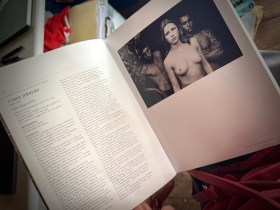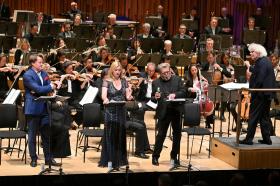Yes it’s that time of year again – EUCLID is taking bookings for this year’s CulturEuro seminars. These seminars offer the UK cultural sector the chance to glean vital clues about how to access some of that sweet European Union funding that is always being talked about. And in the last two years these seminars have been held in over 20 cities in the UK.
As explained on their website, EUCLID is the official EC Cultural Contact Point in the UK for Culture 2000, and provides support and assistance for potential applicants to this programme and guidance on other EU funding opportunities for the cultural sector. Cultural Funding from the EU is broken down into a number of programmes including the two very popular programmes – Advancing the idea of Europe, and Culture 2000. These grants are awarded to cultural cooperation projects in all artistic and cultural fields, where the objective is to promote a common cultural area characterised by its cultural diversity and shared cultural heritage.
In May this year the ever-growing European Union will bound from 15 members to 25, with a number of smaller nations taking the leap and coming on board. Funding the cultural sectors of all of these countries is now becoming a primary project, in turn making the securing of this funding even more competitive.
Funding culture huh? At a glance, who would have thought an organisation as massive and as stalwart as the European Union would be at all interested in culture? But as with all things born from the labours of this Union, culture is more about politics than art at this level of the game. The EU even has a official document entitled: Designing the future programme of cultural cooperation for the European Union after 2006. Published in the middle of last year, it states in its introduction: ‘European action in the cultural field should first and foremost encourage mutual knowledge and dialogue between Europeans. The enlargements of the next few years will strengthen the need for cultural cooperation in an area, which will eventually include 500 million people.’
The popular argument against European Union has always been about the likely homogenisation of culture, where smaller countries and regional cultures lay in danger of being wolfed up by the imposing bigger nations. Yet since it’s inclusion in 1992 in the Treaty on the European Union, cultural cooperation has become a new community competency, as explained on the EU’s Culture website.
Perhaps we have all been too busy obsessing over that great monocultural threat that is America rather than noticing what is happening right on our door? Yet all these anti-cultural imperialist sentiments strike right at the core of the EU’s claim to create a socialist cultural state where European culture in it’s many national configurations will become empowered simply through unification. As one French film distributor said when discussing the endangerment of French cinema by an American market: ‘The problem is Europe. Can we keep rules that protect France’s film industry? Rules are more important than money, but we are looking at a Europe of bankers.’
In Great Britain there has always been endless discussion about culture – in both its local and international manifestation. National newspapers have regular features on the subject, from talking about whether culture is just something for the chattering classes, or whether it is actually a vote winning carrot. For example after the last election The Guardian published an article exclaiming: ‘Labour’s rhetoric had it right: culture and the arts matter. If we don’t care about the creative health of the nation, at least we can look at the contribution the arts makes to the economy. And even without the obvious money-earners, culture is central to national life. Isn’t the debate about Europe centred on notions of a national culture?’
But perhaps what is key in this debate and why an organisation such as EUCLID sees the value in providing seminars to assist British entities interested in securing cultural funding, is its basic value to the man in the street. These seminars provide an A-Z overview of what to do, how to do it and who to know in order to submit a competitive EU grant application. Seminar sessions include looking at the structure of the EU and where its power lies; how to contact and effectively lobby the EU; and how to break down those structural funds so that they actually make sense. EUCLID also provides examples of various successful case studies which we can all endeavour to emulate.
I have purposely used that inclusive we in my last sentence, because it neatly brings us to that age-old question: But who is this culture for? Well the ‘higher ground’ argument has surely been heard too many times, yet it does still lay at the crux of why both here in Great Britain and within the European Union, empowering national and local culture is another attractive vote winner. If culture were only for the elite – those who embrace that ‘higher ground’ philosophy, then there would now in this 21st century, be no power in the cultural sector at all – certainly no political power. The elite a few, but the number of proletariat is growing. Yes indeed we are the masses. And it was probably with this in mind that a few years back, the Living Marxism Magazine held a conference looking at these issues. Engagingly called ‘Culture Wars: Dumbing Down, Wising Up?’, the intent was to discuss who valued the arts and why. Of course the circular nature of this argument became all too clear – for the elite, popular culture was purely deconstructed emptiness, and for the popular culturalist ‘great art’ ranged from David Beckham’s football skills to the next cultural fad (e.g. girl-on-girl tongue-kissing because Madonna kissed Britany).
The Department for culture, media and sport here in Britain identify themselves as the body who will ‘improve the quality of life for all through cultural (and sporting of course!) activities. It is that for all bit that stands out. Similarly, the European Union’s cultural manifesto is explained as: ‘By giving the European Union a say in cultural matters, the Member States’ governments set out to create a ‘Europe of the peoples’, the idea being to make people in Europe aware of their shared history and values, to make them more aware of European culture and Europe’s heritage, but at the same time to cultivate their awareness of local and regional cultures.
Hence it is these images of Europe of the peoples and culture for all that make these EUCLID seminars the starting point of some real cultural empowerment with its many faces, regardless of popularist or patrician values.
British culture has certainly travelled a few miles since George Orwell referred to the British as ‘a nation of flower-lovers’. And western culture in general has come under endless scrutiny from classic theorists such as Umberto Eco, who once argued in another article for The Guardian that pluralism and tolerance is what makes western culture so powerful. A positive argument no doubt, and one which provides some comfort when confronted with scenarios of cultural globalisation dependent more on trade agreements rather than inter-cultural exchange.
For more information on the EUCLID CulturEuro seminars, see their website www.euclid.info/uk/.




